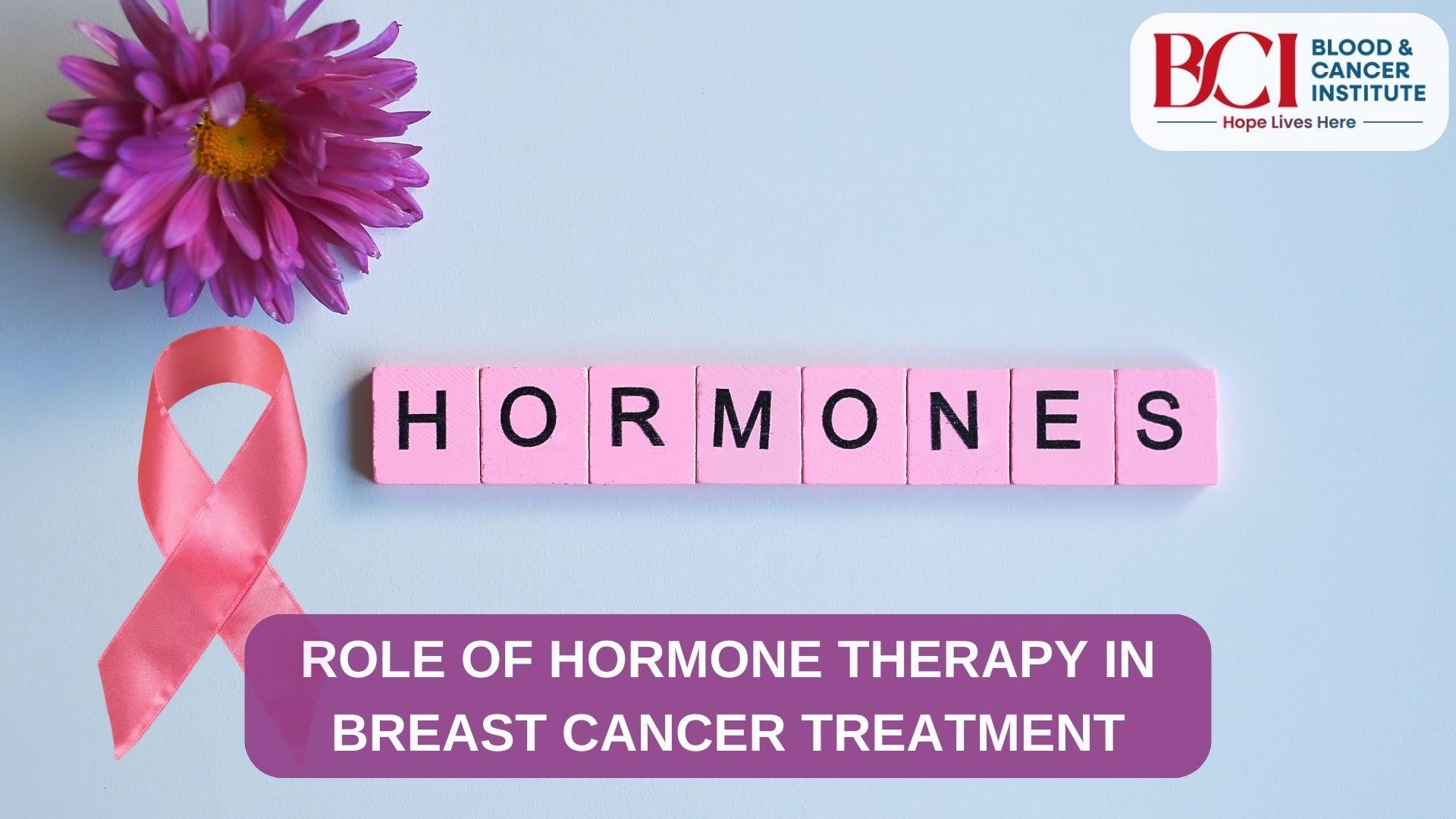
- By : BCI
- Blog
- Comments: 0
The Role of Hormone Therapy in Breast Cancer Treatment Explained By The Breast Cancer Specialist In Surat
Breast cancer remains one of the most prevalent forms of cancer affecting women worldwide. As medical science advances, treatment options continue to evolve, offering patients better chances of survival and improved quality of life. Among these treatment modalities, hormone therapy has emerged as a crucial component in the fight against breast cancer. This blog post from our breast cancer specialists in Surat at BCI- Blood and Cancer Institute, is about the significant role that hormone therapy plays in breast cancer treatment, exploring its mechanisms, applications, and impact on patient outcomes.
Understanding Hormone-Responsive Breast Cancer
Not all breast cancers are the same. A significant proportion of breast cancers are hormone-responsive, meaning their growth is fueled by hormones such as estrogen and progesterone. These cancers are often referred to as estrogen receptor-positive (ER+) or progesterone receptor-positive (PR+) breast cancers.
In hormone-responsive breast cancers, the cancer cells have receptors that bind to estrogen or progesterone, stimulating their growth and proliferation. Cancer specialists in Surat, and worldwide, use this understanding for targeted treatments that aim to disrupt this hormone-dependent growth cycle.
The Mechanism of Hormone Therapy
Hormone therapy, also known as endocrine therapy, works by interfering with the body’s hormone production or by blocking the effects of hormones on breast cancer cells. The primary goal is to deprive the cancer cells of the hormones they need to grow and spread. This can be achieved through various approaches:
- Selective Estrogen Receptor Modulators (SERMs): These drugs, such as tamoxifen, work by binding to estrogen receptors in breast tissue, effectively blocking estrogen from attaching to these receptors.
- Aromatase Inhibitors (AIs): In postmenopausal women, AIs like letrozole, anastrozole, and exemestane work by reducing the amount of estrogen produced in the body by blocking the enzyme aromatase, which is responsible for converting androgens into estrogen.
- Estrogen Receptor Downregulators: Drugs like fulvestrant not only block estrogen receptors but also cause the receptors to be destroyed, further reducing the cancer cells’ ability to respond to estrogen.
- Ovarian Suppression: In premenopausal women, medications or surgical procedures can be used to stop the ovaries from producing hormones, effectively inducing menopause.
Applications of Hormone Therapy
Hormone therapy finds application at various stages of breast cancer treatment in Surat:
- Adjuvant Therapy: After primary treatments like surgery, radiation, or chemotherapy, hormone therapy is often prescribed to reduce the risk of cancer recurrence. This can be a long-term treatment, often lasting 5–10 years.
- Neoadjuvant Therapy: In some cases, hormone therapy may be used before surgery to shrink tumors, making them easier to remove and potentially allowing for breast-conserving surgery.
- Metastatic Breast Cancer Treatment: For patients with advanced or metastatic hormone-responsive breast cancer, hormone therapy can be an effective way to control the disease, often with fewer side effects than traditional chemotherapy.
- Preventive Therapy: In high-risk individuals, certain hormone therapies have shown promise in reducing the risk of developing breast cancer.
Benefits and Considerations
The benefits of hormone therapy in breast cancer treatment are substantial:
● Improved Survival Rates: Studies have shown that hormone therapy can significantly reduce the risk of cancer recurrence and improve overall survival rates in patients with hormone-responsive breast cancers.
● Quality of Life: Compared to chemotherapy, hormone therapy often has fewer and less severe side effects, allowing patients to maintain a better quality of life during treatment.
● Long-term Protection: The protective effects of hormone therapy can extend for many years after the completion of treatment.
However, it’s important to consider that hormone therapy is not without its challenges:
● Side Effects: While generally milder than chemotherapy, hormone therapy can cause side effects such as hot flashes, joint pain, and increased risk of osteoporosis.
● Resistance: Some cancers may develop resistance to hormone therapy over time, necessitating changes in treatment approach.
● Patient Adherence: The long-term nature of hormone therapy can be challenging for some patients, affecting adherence to treatment plans.
Personalized Approach
According to the experts of Blood and Cancer Institute, one of the best cancer hospitals in Surat, the field of breast cancer treatment is moving towards increasingly personalized approaches. Factors such as the specific type of breast cancer, the patient’s menopausal status, and individual risk factors all play a role in determining the most appropriate hormone therapy regimen.
Genomic testing has further refined this approach, allowing oncologists to identify patients who are most likely to benefit from hormone therapy and those who might safely forego it, avoiding unnecessary treatment and potential side effects.
Conclusion
Hormone therapy has revolutionized the treatment of hormone-responsive breast cancers, offering patients a targeted, effective, and often less toxic treatment option. As research continues, we can expect further refinements in hormone therapy approaches, leading to even better outcomes for breast cancer patients.
The role of hormone therapy in breast cancer treatment underscores the importance of personalized medicine and the power of understanding the underlying biology of cancer. As we continue to unravel the complexities of breast cancer, hormone therapy stands as a testament to the progress made in cancer treatment and the hope it brings to millions of patients worldwide.
